The public doesn't expect many major changes to occur during the last two years of the Obama administration
President Obama has delivered his sixth State of the Union message – a speech filled with proposals that won’t get much support from the Congressional Republican majority. But what now? Americans in the latest Economist/YouGov Poll, conducted in the days before the President provided his assessment of what the country needs, don’t expect President Obama to be much different in his last two years in office than he was in his first six.
In fact, if anything, the country predicts things could get worse. A plurality expects the President to accomplish less than he did in his first six years, and that includes one in four Democrats. Democrats are only slightly more likely to think he will accomplish more than that he will accomplish less.
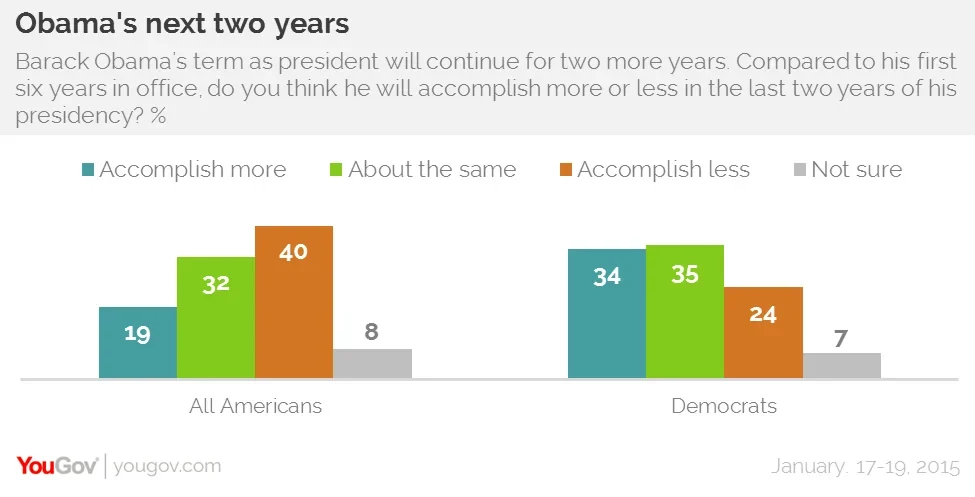
Gridlock will also continue, according to the public. 43% say the President will be less willing to compromise with Republicans during the final two years of his presidency. A third of Democrats agree. But a majority of Democrats – and nearly half of independents – expect as least as much effort at compromise form the President as they have seen in the last six years. Most Republicans express a negative view, as they do on most questions about President Obama, and say he will put even less effort than he has into compromise with Republicans.
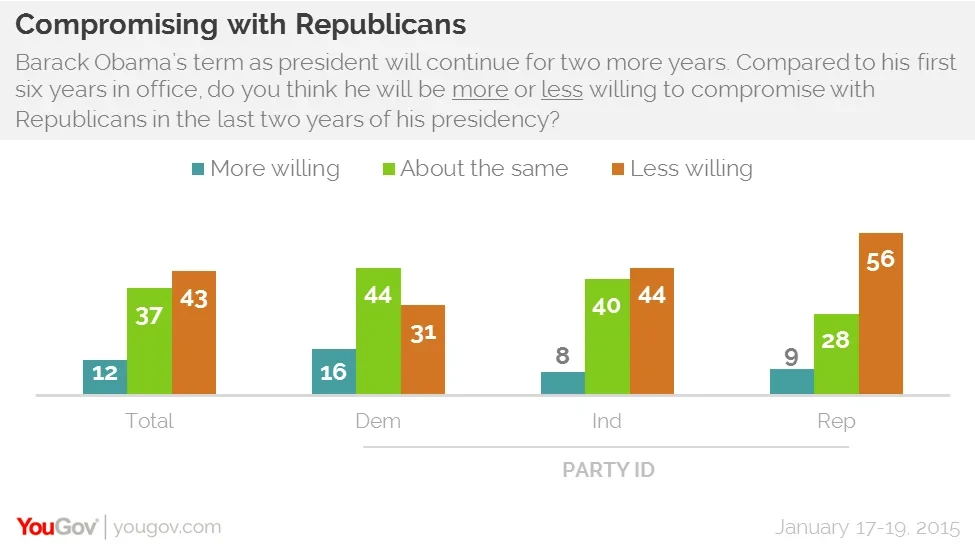
Another indication that things won’t change much and that conflict between President and Congress could even increase is that people don’t expect the President’s ideology to soften. In fact, four in ten (including a quarter of Democrats) expect the President will become more liberal in his last two years – more or less “doubling down” on the ideological differences between him and conservative Republicans. 36% of self-described liberals expect him to be – or perhaps hope that he will be -- more liberal. Expectations from conservatives are even clearer – 55% of them think Mr. Obama will become more liberal in his last two years.
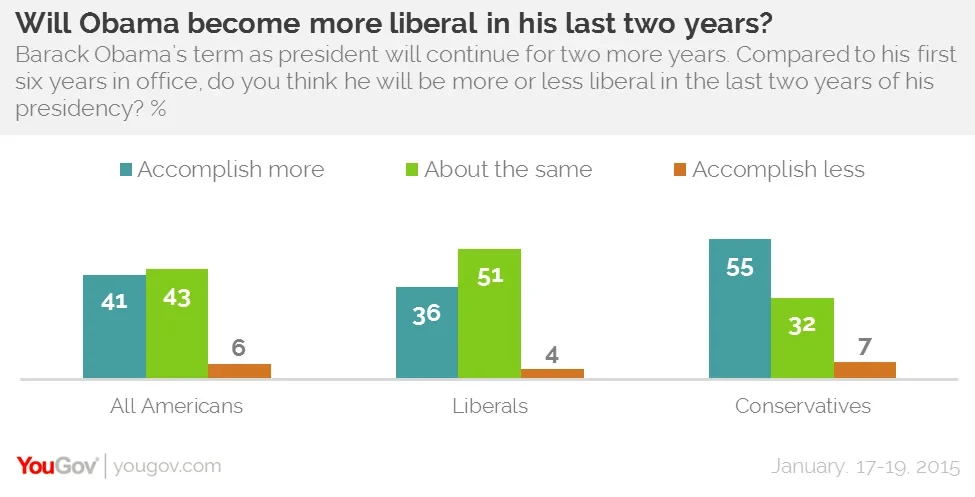
The President’s fortunes have risen a bit since the November election when his party lost control of the U.S. Senate. The major polls, including this one, finds his approval rating higher than it was at the time of the 2014 midterm elections, though it remains below 50%. Poll averages suggest that presidential approval is higher now than at any point since the summer of 2013, in the months following the 2012 Obama re-election.
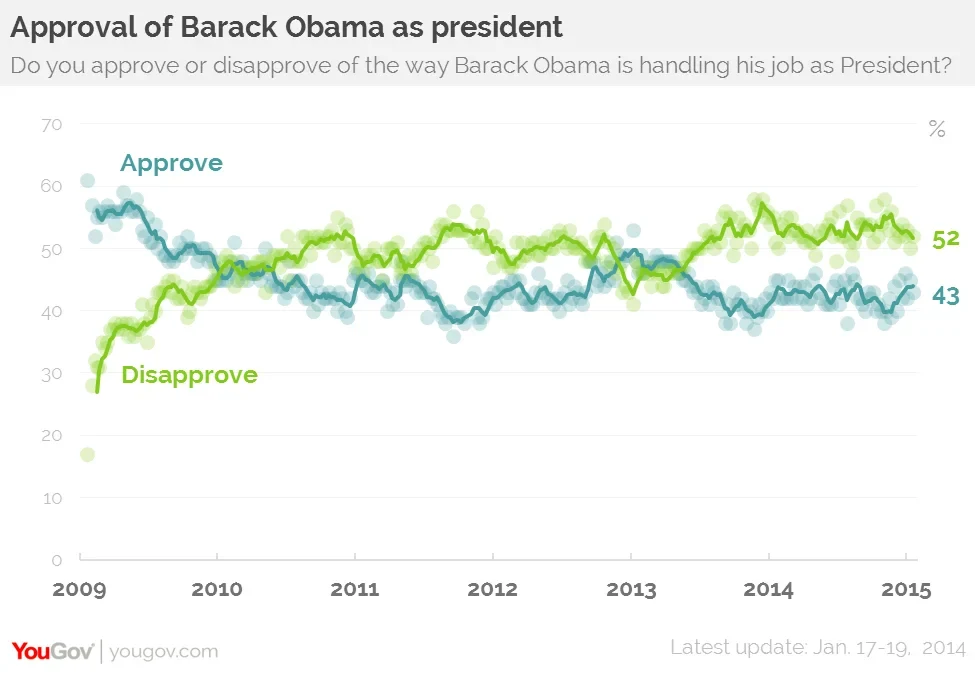
Some of the President’s improvement can be traced to the slowly improving economy, and Americans’ increasing willingness to believe that the economy is getting better. But there is still some pessimism.
It’s not only presidential approval that has risen since the midterm elections. So has the approval rating for Congress. But for Congress, however, that means an overall approval rating that has crept into double – and no longer single – digits. 14% this week approve of how Congress is handling its job.
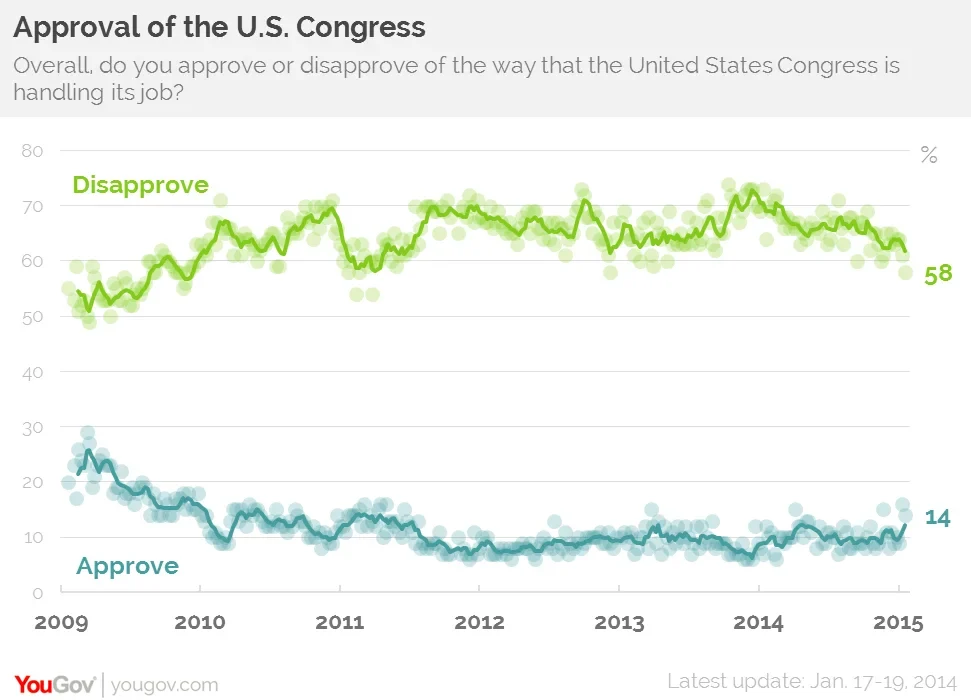
To find a time when Congress achieved that high a rating for more than a single week, you would need to go back to 2011.
Although not even Republicans are positive about how the new Congress is handling its job, Republican approval has been climbing. In this week’s poll, 21% of Republicans now approve of how Congress is handling its job.
Economist/YouGov poll archives can be found here.










